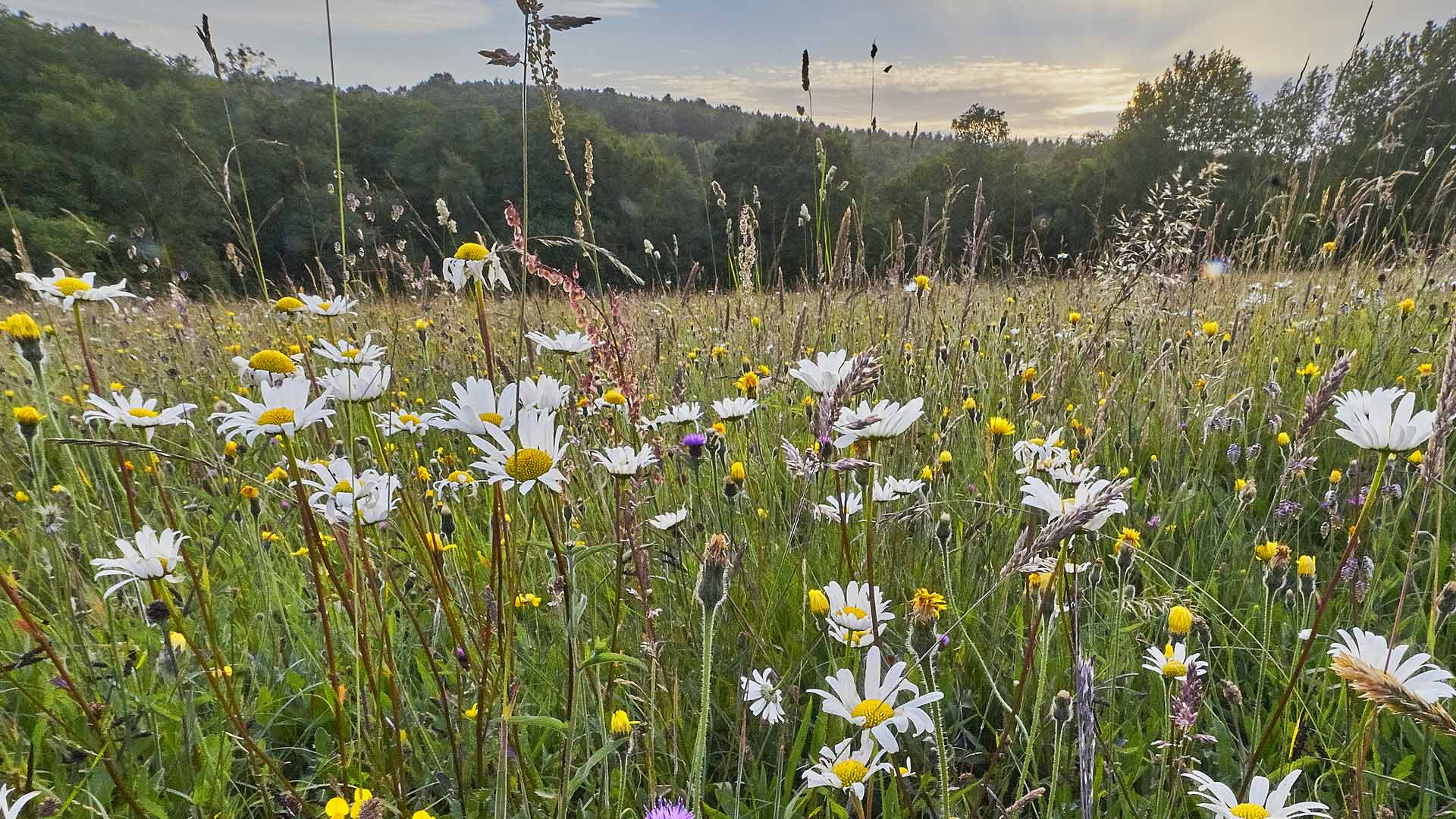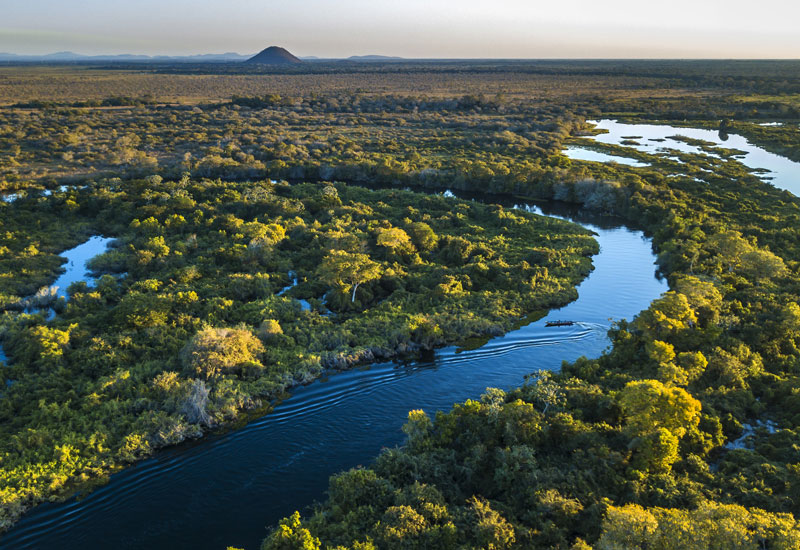Get the right experience for you. Please select your location and investor type.
IMPORTANT NEWS: Transition of investment management responsibilities
First Sentier Group, the global asset management organisation, has announced a strategic transition of Stewart Investors' investment management responsibilities to its affiliate investment team, FSSA Investment Managers, effective Friday, 14 November close of business EST.

Biodiversity and how we select companies
Our investment approach favours companies that provide products and services that meet basic needs, solve difficult problems and seek to do more with less. A result of our investment philosophy means that we avoid companies that have a significant negative impact on the natural environment, as stated in our position on harmful and controversial products and services.
There are no sectors excluded solely on biodiversity grounds. Instead, each company is assessed according to how it is working to reduce the environmental impact of its operations and supply chains, or actively contributing to better environmental outcomes through its products and services.
Examples of companies that meet basic needs are those providing healthy foods, medicines and basic care. We invest in companies that seek to provide high quality products while carefully managing their resources including:
- Slowing the rate of land degradation, land-use change and loss of forests and other natural habitats
- Securing the livelihoods of people at the bottom of the pyramid through financial inclusion and innovative supply chains
Many of our investee companies integrate circular economy principles and support the efficient use of resources including:
- Reducing waste and improving waste management.
- Increasing the use of renewable and cleaner energy technologies
- Reducing greenhouse gas emissions and water, air and other environmental pollution
Included below are a three examples of companies that demonstrate the range of contributions that a company can make, depending on the sector they are operating in. There are many more that can be found by accessing our Portfolio Explorer tool on the Stewart Investors website. Given the interconnected nature of environmental issues such as climate change, biodiversity loss, pollution and water use, we map each company’s products and services to the solutions identified and researched by Project Drawdown. This helps us to understand how the companies we invest in are contributing to environmental outcomes such as forest protection, plant-rich diets, food waste and conservation agriculture.
Natura
Natura is a beauty and personal care company based in Brazil with operations across Latin America and the rest of the world. It was founded with an ethos of sustainability at its heart and is widely regarded as a leader on a whole range of sustainability issues including biodiversity.
In 2020, Natura created a Commitment to Life 2030 Sustainability Vision with 31 targets to tackle the world’s most pressing issues such as protecting the Amazon and embracing circularity and regeneration. Targets include:
- Expand influence on forest protection and foster collective efforts towards deforestation
- Create targets in partnership with industry groups focused on biodiversity
- Have greater than 95% renewable or natural ingredients and greater than 95% biodegradable formulas
- Use regenerative agriculture in deforested areas to reduce use of chemicals and create alternatives to monocultures
- Through the use of new ingredients, create revenue streams that are more economically attractive than deforestation
They also have benefit sharing agreements linked to forest protection and sustainable harvesting with local communities. They have relationships with 48 communities, 41 of which are in the Pan-Amazon region, supporting them in building and maintaining sustainable economies. Some initial results of these initiatives are an increase in Natura’s preservation of the Amazon from 1.8 to 2 million hectares and the launch of a new tool in partnership with MapBiomas and InfoAmazonia to monitor the health of the Amazon.1
Marico
Marico is an Indian company producing and selling health, beauty and wellness products. The company started life selling coconut oil and has stayed close to its roots, even as it has branched out to provide personal care products such as shampoo and other foods such as healthy oats. Marico is the largest buyer of coconuts in India.2 The importance of coconuts to its business has led it to work closely with the smallholder farms in its supply chain.
While coconuts are a monocrop, they are also perennials. Perennial crops have a multitude of important roles to play in stemming biodiversity loss: they produce stable and diverse habitats for a variety of organisms; have deeper root systems which improve soil structure, nutrient cycling and water retention and support pollinators. In addition, perennial crops require less land clearing compared to annual crops and help to protect natural ecosystems such as forests, wetlands and grasslands.
Marico supports coconut farmers through education, access to speciality agribusiness centres and construction of water ponds. It has a long record of encouraging agroforestry, intercropping and other sustainable farming practises to mitigate the effects of monocrops. In doing this, it not only secures its supply chain, it also supports the development of the farmers while contributing to practises that are positive for biodiversity.2
HDFC Bank
HDFC is India’s second largest financial institution. It was set up nearly 50 years ago to provide mortgages to lower income Indians and other low cost products and services to the underbanked (those without full access to banking services) and underserved population.
There is a large wealth divide between the rural and urban populations in India and HDFC has long been focused on addressing the needs of the rural population. This means that farmers are a key customer segment for them. As well as providing banking services, HDFC Bank works closely with farmers to provide economic and educational assistance for agricultural projects. Initiatives include educating farmers in improving productivity in a sustainable way, helping them to purchase modern tools and providing seeds and fertilisers.
Helping small-scale farmers to improve productivity while minimising negative environmental impacts leads to practises that minimise waste, reduce water usage and improve soil fertility. This has a number of important impacts on biodiversity, including protecting natural habitats, conserving genetic diversity and promoting practises that are friendly to pollinators.
Want to know more?
Important Information
This material is for general information purposes only. It does not constitute investment or financial advice and does not take into account any specific investment objectives, financial situation or needs. This is not an offer to provide asset management services, is not a recommendation or an offer or solicitation to buy, hold or sell any security or to execute any agreement for portfolio management or investment advisory services and this material has not been prepared in connection with any such offer. Before making any investment decision you should consider, with the assistance of a financial advisor, your individual investment needs, objectives and financial situation.
We have taken reasonable care to ensure that this material is accurate, current, and complete and fit for its intended purpose and audience as at the date of publication. To the extent this material contains any measurements or data related to environmental, social and governance (ESG) factors, these measurements or data are estimates based on information sourced by the relevant investment team from third parties including portfolio companies and such information may ultimately prove to be inaccurate. No assurance is given or liability accepted regarding the accuracy, validity or completeness of this material and we do not undertake to update it in future if circumstances change.
To the extent this material contains any expression of opinion or forward-looking statements, such opinions and statements are based on assumptions, matters and sources believed to be true and reliable at the time of publication only. This material reflects the views of the individual writers only. Those views may change, may not prove to be valid and may not reflect the views of everyone at First Sentier Investors.
To the extent this material contains any ESG related commitments or targets, such commitments or targets are current as at the date of publication and have been formulated by the relevant investment team in accordance with either internally developed proprietary frameworks or are otherwise based on the Institutional Investors Group on Climate Change (IIGCC) Paris Aligned Investment Initiative framework. The commitments and targets are based on information and representations made to the relevant investment teams by portfolio companies (which may ultimately prove not be accurate), together with assumptions made by the relevant investment team in relation to future matters such as government policy implementation in ESG and other climate-related areas, enhanced future technology and the actions of portfolio companies (all of which are subject to change over time). As such, achievement of these commitments and targets depend on the ongoing accuracy of such information and representations as well as the realisation of such future matters. Any commitments and targets set out in this material are continuously reviewed by the relevant investment teams and subject to change without notice.
About First Sentier Investors
References to ‘we’, ‘us’ or ‘our’ are references to First Sentier Investors, a global asset management business which is ultimately owned by Mitsubishi UFJ Financial Group. Certain of our investment teams operate under the trading names FSSA Investment Managers, Stewart Investors, RQI Investors and Igneo Infrastructure Partners, all of which are part of the First Sentier Investors group.
We communicate and conduct business through different legal entities in different locations. This material is communicated in:
- Australia and New Zealand by First Sentier Investors (Australia) IM Ltd, authorised and regulated in Australia by the Australian Securities and Investments Commission (AFSL 289017; ABN 89 114 194311)
- European Economic Area by First Sentier Investors (Ireland) Limited, authorised and regulated in Ireland by the Central Bank of Ireland (CBI reg no. C182306; reg office 70 Sir John Rogerson’s Quay, Dublin 2, Ireland; reg company no. 629188)
- Hong Kong by First Sentier Investors (Hong Kong) Limited and has not been reviewed by the Securities & Futures Commission in Hong Kong. First Sentier Investors, FSSA Investment Managers, Stewart Investors, RQI Investors and Igneo Infrastructure Partners are the business names of First Sentier Investors (Hong Kong) Limited.
- Singapore by First Sentier Investors (Singapore) (reg company no. 196900420D) and this advertisement or material has not been reviewed by the Monetary Authority of Singapore. First Sentier Investors (registration number 53236800B), FSSA Investment Managers (registration number 53314080C), Stewart Investors (registration number 53310114W), RQI Investors (registration number 53472532E) and Igneo Infrastructure Partners (registration number 53447928J) are the business divisions of First Sentier Investors (Singapore).
- Japan by First Sentier Investors (Japan) Limited, authorised and regulated by the Financial Service Agency (Director of Kanto Local Finance Bureau (Registered Financial Institutions) No.2611)
- United Kingdom by First Sentier Investors (UK) Funds Limited, authorised and regulated by the Financial Conduct Authority (reg. no. 2294743; reg office Finsbury Circus House, 15 Finsbury Circus, London EC2M 7EB)
- United States by First Sentier Investors (US) LLC, authorised and regulated by the Securities Exchange Commission (RIA 801-93167)
- other jurisdictions, where this document may lawfully be issued, by First Sentier Investors International IM Limited, authorised and regulated in the UK by the Financial Conduct Authority (FCA ref no. 122512; Registered office: 23 St. Andrew Square, Edinburgh, EH2 1BB; Company no. SC079063).
To the extent permitted by law, MUFG and its subsidiaries are not liable for any loss or damage as a result of reliance on any statement or information contained in this document. Neither MUFG nor any of its subsidiaries guarantee the performance of any investment products referred to in this document or the repayment of capital. Any investments referred to are not deposits or other liabilities of MUFG or its subsidiaries, and are subject to investment risk, including loss of income and capital invested
© First Sentier Investors Group

